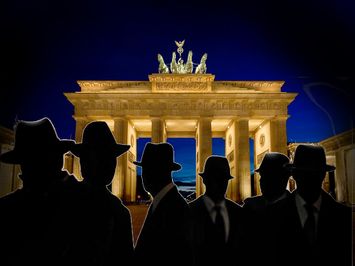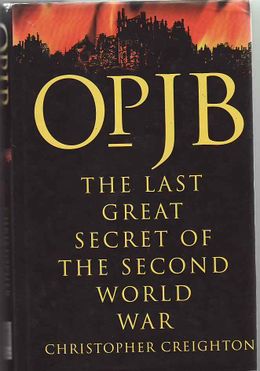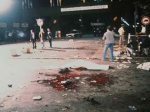Germany/Deep state
(Deep state) | |
|---|---|
 | |
| Headquarters | Germany |
| Interest of | Richard Löwenthal |
| The German deep state was largely rebooted by the US deep state after the German defeat in WW2. | |
The German deep state was re-booted after WW2 by the occupying powers. This put the Western portion under the control of the US deep state, UK deep state and to a lesser extent the French deep state.
Contents
WW1
- Full article: WW1
- Full article: WW1
World War I saw the eclipse of the British Empire, and influence shift across the Atlantic from London to Washington.
Interwar years
After its military defeat, the US deep state invested in Germany. Antony Sutton has documented the assistance provided to Germany by The Money Trust. Sullivan and Cromwell were involved in assisting German companies.[How?][citation needed]
Chancellor Walther Rathenau signed the Treaty of Rapallo with the Soviet Union on 16 April 1922, "in a spirit of mutual goodwill in meeting the economic needs of both countries". Thereby they bypassed the weak status of both countries after WW1, and created great shock amongst the victorious Western Powers. One month later, on 24 June 1922, Rathenau was assassinated.[citation needed]
WW2
- Full article: WW2
- Full article: WW2
Adam LeBor reportedly unearthed documents about the Red House meeting in 1944, in which senior members of the German Deep state planned how to handle the defeat of Hitler. OpJB is an ostensibly non-fiction book about a successful UK operation to rescue Martin Bormann from Berlin at the end of the war.
Immediate Post War Era 1945-1949
The unprecedented violence of World War II necessitated a high profile "denazification" process. The Nuremberg Trials provided a visible aspect of this. Meanwhile Operation Paperclip exfiltrated people of interest to the United States and ratlines provided another avenue of escape from Germany.
1950s
During the 1950s, the Stay Behind network, recruited mainly from former SS-members, made death lists of prominent people in the WDR[Where?][citation needed]. These lists included large parts of the Social Democrat leadership.
1960s
Franz Josef Strauß was a regular visitor to Le Cercle. He stepped down as defence minister in 1962 after it emerged that he had had Rudolf Augstein, owner and editor-in-chief of Der Spiegel, arrested and imprisoned for 103 days.
In 1963, when Chancellor Konrad Adenauer showed too much inclination to support the French vision of Europe over the American one, he was deposed 1963 by intrigues from the transatlantic deep state networks.
Kurt-Georg Kiesinger was a member of the Bundestag who attended 5 Bilderberg meetings from September 1955 to 1960. The Langemann papers revealed that the BND stole documents from US archives which implicated him in Nazi war crimes. He was Chancellor of Germany for nearly 3 years at the end of the 1960s.
1970s
Social Democrat Chancellor Willy Brandt, having shown too much foreign policy independence, had to resign after being entrapped by his own/US spy services in the Guillaume affair.
1980s
- Full article: Oktoberfest Bombing
- Full article: Oktoberfest Bombing
In 1980, the Oktoberfest Bombing killed 13 people. It was blamed on a "lone nut" neo-nazi, Gundolf Köhler.
Scott Thompson reported in 1982 that Helmut Schmidt's coalition government was taken down by participants of Le Cercle.[1]
The death of German politician Uwe Barschel in a hotel room in 1987 was officially ruled a suicide, but many later independent investigations have shown that this was in fact a liquidation, and that Barschel had deep ties to arms smuggling networks in "Iran-Contra".
The assassination of the freethinking businessman Alfred Herrhausen was officially ascribed to the murky 'third wave' of the Red Army Faction, and the remnants of the group even claimed responsibility. But the murder might well have been because of some of his more unorthodox positions, like debt cancellation for the third world, which might have stepped on too many banking toes, leading to him being publicly accused of 'un-solidaric behavior'[citation needed] by other bankers.
1990s
2000s
2010s
- German intelligence agencies are reported[By whom?] to be collaborating with Neo-nazi terrorist groups including the the NSU. There is a significant overlap between police informers and active leaders in these groups.[citation needed]
- Neo-nazis are given a free hand in Germany to recruit to the Nazi Azov-battalion in the Ukraine, creating a potential network for future Gladio-like operations.
- Anis Amri, the official suspect in the 2016 Berlin truck attack at a Christmas market, was reported[Where?] to have had close ties with spooks, exemplifying rumoured close ties between Islamic "terrorist" groups and the German spooks[citation needed]. Four days after the attack, he was killed by Italian police near Milan.
- When liberal (FDP) politican and Foreign Minister Guido Westerwelle showed too much independence, he was ousted after a media campaign. In 2010, leaked U.S. diplomatic cables revealed that American diplomats considered Westerwelle an obstacle to deeper transatlantic relations. The final straw was his opposition to the attack on Libya in 2011, and he was forced to resign.[citation needed]
- The transatlantic deep state networks, controlled by the CIA, are actively working to create tensions between Russia and Germany, including sabotaging business relations, like the Nord Stream 2 gas pipeline.[citation needed]
People
- Otto Wolff von Amerongen
- Otto von Habsburg
- Walter Scheel - Chair of the Bilderberg Steering Committee in the 1980s.
- Gerhard Löwenthal ??
Groups
- BND
- Operation Gladio - Unknown to what extent this was activated. Possibly connected to the 1980 Oktoberfest Bombing
- Le Cercle
- Bilderberg
Exposures
Langemann Papers
- Full article: Langemann Papers
- Full article: Langemann Papers
The Langemann Papers were a set of documents revealed by Hans Langemann. These were the first siginifcant exposure of Le Cercle and revealed various BND activities such as their support for German companies' arms deals, and their theft of documents from US archives which indicted Bundeskanzler Kurt-Georg Kiesinger for Nazi war crimes.
Related Quotation
| Page | Quote |
|---|---|
| "Conspiracy theory" | “There is in Italy a power which we seldom mention in this House ... I mean the secret societies... It is useless to deny, because it is impossible to conceal, that a great part of Europe — the whole of Italy and France and a great portion of Germany, to say nothing of other countries — is covered with a network of these secret societies, just as the superficies of the earth is now being covered with railroads. And what are their objects? They do not attempt to conceal them. They do not want constitutional government; they do not want ameliorated institutions ... they want to change the tenure of land, to drive out the present owners of the soil and to put an end to ecclesiastical establishments. Some of them may go further...” |
Related Documents
| Title | Type | Publication date | Author(s) | Description |
|---|---|---|---|---|
| Document:Has Udo Ulfkotte been bumped off | Blog post | 14 January 2017 | Hadmut Danisch | |
| Document:The Deep State: Germany, Immigration, and the National Socialist Underground | Wikispooks Page | 11 September 2014 | Wildcat | Research on the NSU has shown that the intelligence services had the fascist terror organization under surveillance the whole time, without passing its information on to the police. It had many Confidential Informants (CIs) in leading positions in the fascist structures – or rather, the CIs even built up large parts of these structures. |
| Document:Why Angela Merkel has lasted so long | Article | 30 July 2021 | Wolfgang Streeck | 2 months before the September 2021 elections in which Angela Merkel will retire as Chancellor, a German economic sociologist writes as to why and how she has been able to hold onto power in Germany for so long after an unprecedented 16 years in power. |

